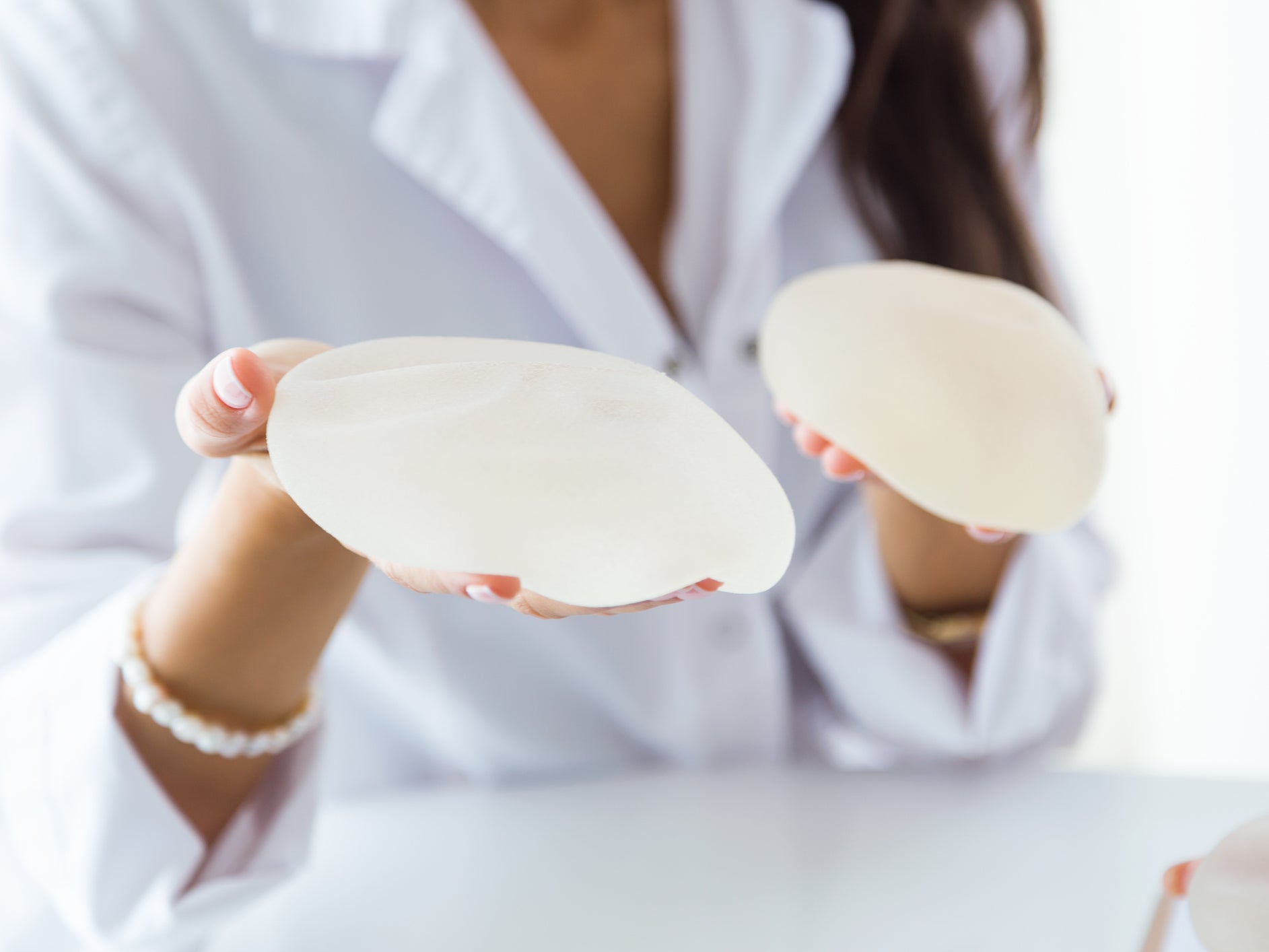Breast implants banned in France for cancer risk still on sale in UK
Exclusive: 'Women’s health is a much bigger priority in France,' says campaigner

Breast implants banned this week in France because of their cancer risk will continue to be sold in the UK, the Medicines & Healthcare products Regulatory Agency (MHRA) has confirmed.
The macro-textured and polyurethane breast implants for cosmetic and reconstructive surgery will be banned from Friday, France's National Agency for Medicines and Health Products (ANSM) has ruled.
It said they came with a slight risk of developing a rare form of non-Hodgkin lymphoma.
But there will be no change in the UK, where the macro-textured and polyurethane implants are used for both private and NHS patients.
“I think women’s health is a much bigger priority in France,” said Jan Spivey, co-founder of the PIP Action Campaign which campaigns against unsafe breast implants.
She criticised the MHRA of “regulatory capture”, which she called “a form of corruption where it sides with the manufacturers over and above the interests of the people it is intended to protect.”
But the MHRA defended its decision to allow manufactures to sell all types of textured implants in the UK.
“Based on our analysis of the latest scientific evidence and expert clinical advice our advice remains the same," a spokesperson said.
"There is no new evidence of an increased risk to patients and there is no need for people with breast implants to have them removed.”
However, Ms Spivey accused the MHRA of failing to listen to concerns in the same way it ignored doctors’ initial complaints about PIP implants.
The implants, which were prone to splitting due to unapproved silicone gel, were discontinued globally after the manufacturer went into liquidation the same day ANSM’s predecessor removed them from circulation.
A 2012 government review into the PIP breast implant scandal found MHRA, as the UK regulator, had acted appropriately and followed scientific and clinical advice.
UK Health Minister Lord Howe was clear that this case was one of deliberate fraud by the PIP manufacturer which purposefully misled European regulators.
However, the 2012 report said “the MHRA must be able to obtain evidence from a wider and more detailed set of sources”, having relied upon data provided by a fraudulent manufacturer as it was “acting in good faith”.
The French medical and healthcare watchdog said the ban will “reduce the risk of women being exposed to anaplastic large cell lymphoma (ALCL), which is a rare but serious risk.”
Because the risk is still very low, there is no recommendation that women with these implants get them removed.
Less than 30 per cent of breast implants sold in France are macro-textured or polyurethane, an ANSM director, Christelle Ratignier-Carbonneil, told the Agence France-Presse news agency.
The ANSM has been investigating the link between breast implants and this rare form of cancer from 2011.
Since then, there have been 59 cases of breast implant associated anaplastic large cell lymphoma (BIA-ALCL) reported. Several of these women have died.
The study found that the texturing of some polyurethane and macro-textured implants increase the risk of the rare lymphoma.
It is thought the rough surface texture may trigger ALCL. Smooth breast implants are recommended by ANSM for those considering breast augmentation or reconstructive surgery.
In December 2018, Allergan textured implants were suspended from the European market when they lost their certification, following advice from the ANSM.
Health Canada also announced on Thursday it was also suspending Allergan’s breast implant license as part of a safety review.
Lots of woman with faulty PIP implants in both France and the UK were offered Allergan textured implants as replacements.
There are currently no banned breast implants in the UK, according to the MHRA

The chair of the Independent Plastic, Reconstructive and Aesthetic Surgery Expert Advisory Group (PRASEAG) said: “There is no need for people with breast implants in the UK to have them removed because there is no new evidence that the risk has changed.”
“The situation will be reviewed regularly by the MHRA.”
The PRASEAG advises people worried about breast implants to see their GP or surgeon, especially if they notice swelling around the implant more than six months after surgery.
Join our commenting forum
Join thought-provoking conversations, follow other Independent readers and see their replies
Comments
Bookmark popover
Removed from bookmarks